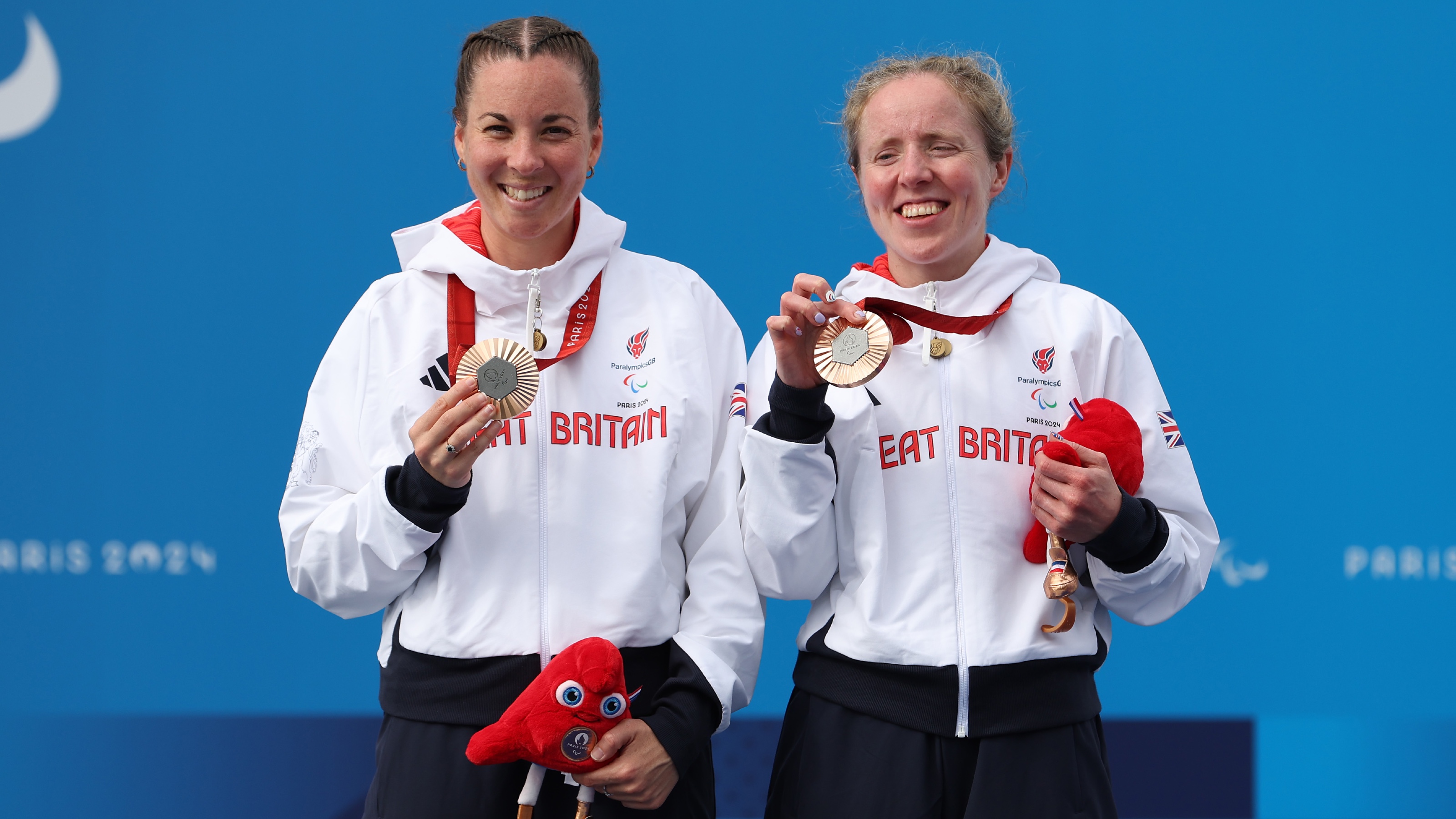“I didn’t have a clue what I was doing. I’d never applied for a job before.”
Lora Fachie is recalling a feeling that will be familiar to many elite sportspeople as she reflects on the process of applying for her first ‘proper job’ following her retirement from para-cycling.
The two-time Paralympic champion’s job hunt began in March of this year, when she found out she was being released from British Cycling’s World Class Programme after 15 years.
Leaving the sport was all the things you might expect – scary, upsetting, daunting.
However, three months later – and by the time her retirement had been officially announced – life felt very different for Lora as she was celebrating the beginning of her new career as a Workforce Development Officer at British Blind Sport.
“When I found out I would be leaving, I gave myself three months because I knew I would still have transition funding coming in,” Lora explains.
“I said, I’m just going to say yes to everything and do as much as possible and then after that I’ll decide what I’m going to do.
“I've got a really good support network, so I reached out to people I'd dealt with in my time in the elite system to talk through my options. One of my old Performance Lifestyle Advisors sent me the job and said I should apply.
“When I got the interview, I went into it with the approach that it’s a great opportunity to learn, because I had never had a job interview before.
“When they offered me the job and I was gobsmacked. I couldn’t get my head around the fact I’d been offered a job straight after retiring.”
In her new role, Lora is tasked with educating organisations on how they can best support visually impaired people in sport after British Blind Sport identified a skills gap in the sector.
Having been born with a visual impairment, Lora has used her lived experience to design and deliver a workshop on how sports organisations and schools can be more inclusive to blind and partially sighted people.
“Before I started the role, I didn't realise just how much knowledge I had to give on the subject,” adds the four-time World Champion.
“And I'm learning quickly that the qualities that being an athlete instils in you set you up so well for work.
“I’m so grateful to British Blind Sport for giving me the opportunity. I’ve said a couple of times that I was incredibly lucky, but people have reminded me that I put myself out there and got the interview off my own back and British Blind Sport chose me because they thought I’d be the right person for the role.
“It took me a while to get my head round that, but it’s been the best thing ever.”
Despite the positives, Lora acknowledges that stepping away from sport is always going to prove challenging for athletes.
That’s particularly the case in the short term, as you adjust to a new way of life, but she hopes her experience reminds BEAA members that they still have a huge amount to offer once they’ve stopped competing.
“You don’t realise how powerful you are as an athlete,” she says.
“When you’re in the elite system, you don’t realise how unique you are because you’re surrounded by similar people and when you come out of the system, you realise you have so many qualities that companies would absolutely jump at.
“You're reliable, you can plan, you can listen to feedback, you can challenge, you can push yourself, you can deal with pressure.
“There are so many traits as an athlete that mean you’ll bring value to a company, so take every opportunity, put yourself out there and don't be ashamed of the fact that you're stepping away from the programme.”
